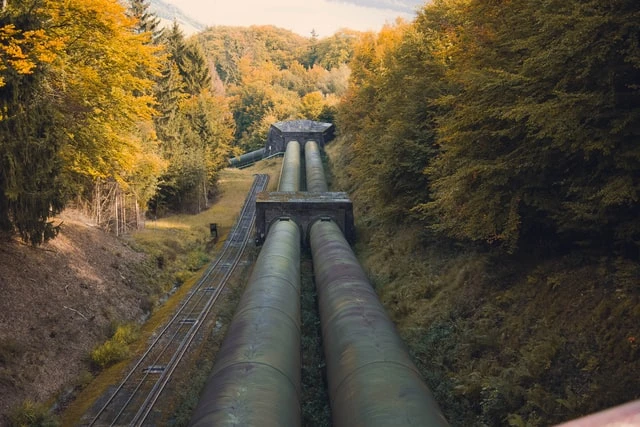What if? The Economic Effects for Germany of a Stop of Energy Imports from Russia

Photo by Quinten de Graaf on Unsplash
ECONtribute.de, 2022
This article discusses the economic effects of a potential cut-off of the German economy from Russian energy imports. We show that the effects are likely to be substantial but manageable. In the short run, a stop of Russian energy imports would lead to a GDP decline in range between 0.5% and 3% (cf. the GDP decline in 2020 during the pandemic was 4.5%). (i) In the case of an import stop, imports of oil and coal from Russia can be substituted from other countries, but the situation in the gas market is more challenging. An increase in gas imports from other countries, substitution of gas used for electricity production by coal or nuclear as well as refilling of storage facilities over the summer can only reduce the shortfall to about 30% of gas consumption or 8% of German energy consumption over the next 12 months. (ii) How would the German economy cope with such a shortfall of gas deliveries? The economic effects crucially depend on substitution and reallocation of energy inputs across sectors. To quantify these effects, we use a state-of-the-art multi-sectoral open economy model following Baqaae and Farhi (2021) that accounts for elasticities of substitution and reallocation between different intermediate inputs. In a second step, we turn to a simplified model that helps us derive plausible bounds for the economic effects using observed elasticities for energy inputs. In the Baqaae-Farhi model, the output costs of a Russian import stop remain firmly below 1% of Gross Domestic Product (GDP), or between 80 and 120 Euros per German citizen per year. In a more pessimistic scenario where it proves very difficult to substitute Russian gas in the short-run outside the electricity sector, the economic costs would rise to about 2-2.5% of GDP, or about 1000 Euros per German citizen over 1 year. This comes potentially on top of a large increase in energy prices for household and industry even without a shortfall of gas deliveries. Of course the effects are more detrimental in energy intensive sectors. (iii) Data from the Income and Consumption Survey (EVS) show variation in the expenditure share on energy across the income distribution. However, the distributional consequences of an increase in energy prices appear manageable. A targeted policy towards low-income households without reducing the incentives for households to save energy would be a cost effective way of ensuring a fair burden-sharing across households. It is important to maintain strong incentives for households to reduce gas usage. (iv) Economic policy should aim at strategically increasing incentives to substitute and save fossil energies as soon as possible. In case that an active embargo is politically desired, it should start as soon as possible so that economic agents can use the summer period for adjustment. To reduce dependence on imported energy, it is advisable for the government to commit to elevated fossil energy prices, in particular for natural gas, for an extended period to create incentives for households and industry to adjust quickly.
Comment from our editors:
It has become a veritable battle: the heated exchange between German economists about the probable economic losses occuring in Germany in case of a complete energy embargo against Russia.
This study by the Rüdiger Bachmann et.al. has started the debate, claiming that repercussions of a possible embargo on the German economy are "substantial, but manageable" and has resulted in multiple reactions. These have not only included rebuttals by other economists - such as a study from German Council of Economic Experts, which estimates that potential repercussions would be significantly higher, even if still manageable - but also provoked criticism from politicians criticising the lack of realism or contextuality of the models deployed, most noticeably German chancellor Olaf Scholz.
We have linked some of the contributions to the debate as well as content reflecting on the ongoing debate - e.g. a recent podcast from Adam Tooze that surveys the debate - as we feel that the debate can help students to learn about the value of pluralism in economics. The debate does not only highlight how the use of different models is associated with widely diverging forecasts, but also how closely economic analysis and political positions and interests are intertwined. In addition, the debate exemplifies a highly polarized style of debate as well as a distinct narrowness of debate which shows e.g. in the fact that the question of secondary effects on societies beyond Russia and its adversaries is largely absent from the debate.
Go to: What if? The Economic Effects for Germany of a Stop of Energy Imports from Russia
